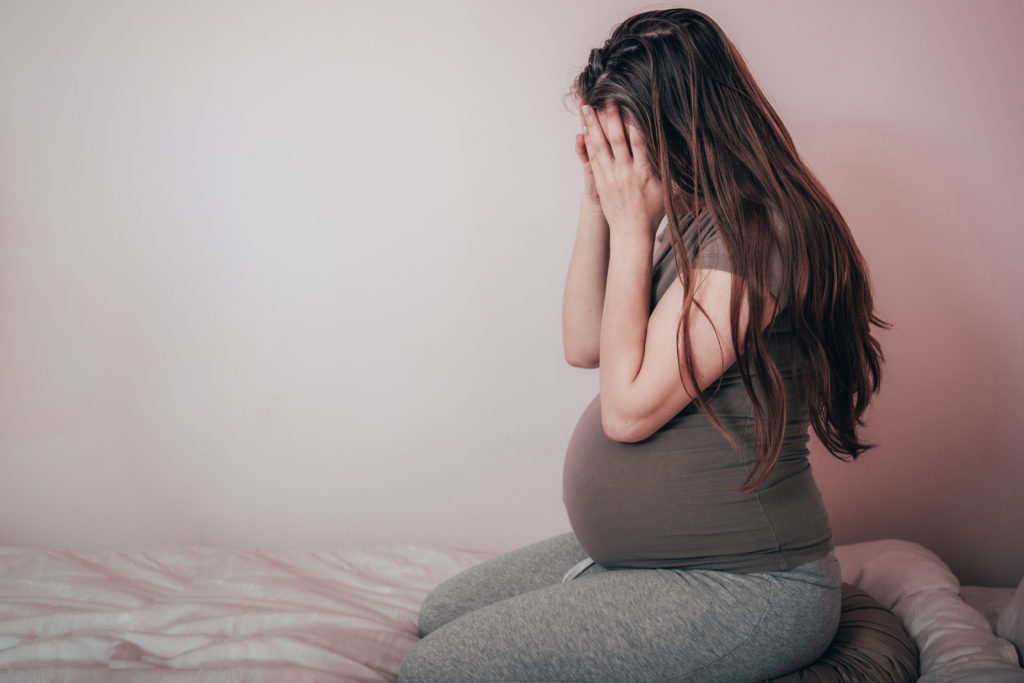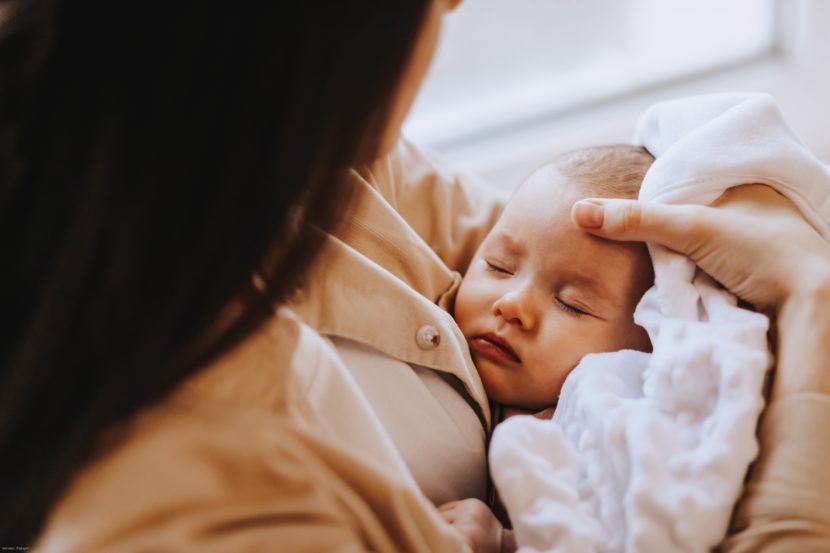With the increased use of assisted human reproduction, anonymous gamete donation presents a growing concern for donor-conceived children. Historically, donor-conceived children have been left with minimal protection for their physical and mental wellbeing. It is crucial to ensure access to verifiable information such as donor medical history and ongoing relevant health information to fulfill the best interest of the child in Canada.
What is anonymous gamete donation?
“Gamete donation” refers to the donation of sperm, ova, and egg cells. While differences arise between sperm, ova, and egg cell donations, their anonymous use gives rise to similar concerns (Brandt, Wilkinson & Williams, 2021). Gamete donations involve agreements reached between donors, intended parents, and doctors or clinicians where a child is conceived via the donation.
Historically, intended parents were led to believe that choosing an anonymous donor would prevent the donor from intruding on their lives and those of their children (Kramer, 2022). As a result, a culture of secrecy was created between patients and doctors at fertility clinics. The rights and interests of donor-conceived children were rarely, if ever, addressed in these agreements.
Assisted human reproduction in Canada
Assisted human reproduction was first embraced in Canada in the early 1980’s with the establishment of in vitro fertilization (“IVF”) clinics (Yuzpe, 2019). Shortly after, the industry faced harsh criticism for the lack of oversight and regulation of IVF. In 2004, the Assisted Human Reproduction Act was introduced, stating that identifying information about a donor was not to be disclosed without the donor’s consent (AHRA, 2004).
Today, assisted reproduction is poorly regulated in Canada. With little to no enforcement of the legislation, insufficient protection is given to all affected parties, including donor-conceived children. While the law currently requires the disclosure of select non-identifying information about the donor, such as medical history, it is not being effectively enforced.
Further, donors are not required to update their medical information. Issues can arise when younger donors, who are less likely to show signs of genetic diseases, do not disclose hereditary health concerns that they develop after donating.
Children’s international rights
It has been argued that knowing one’s genetic origins is a right protected in international law. The Convention on the Rights of the Child sets out several relevant provisions for donor anonymity including the principle of the best interest of the child and the right to information (Convention, 1989).
It is important to note that the rights under the Convention can also be used to argue parental rights for genetic parents. If the argument to include genetic parents has standing, intended parents would have to maintain relations with their child’s gamete donor but anonymous donors may choose to be anonymous to avoid being involved in the child’s life.
Health risks of anonymous gamete donation
While the idea of an anonymous donor may feel comforting to an intended parent who does not want the involvement of the donor in their child’s life, research shows that this is not in the best interest of donor-conceived children (Golombok, 2023).
A big concern among donor-conceived people is the health risks for themselves and their prospective offspring that may be based on the medical history of gamete donors (White, 2018). Many physical and psychological health diseases are hereditary. Often, these diseases are adult onset and appear after gamete donation occurs.

Clinics rarely update parents or donor-conceived children with the donor’s medical information. Knowing the donor’s latest medical concerns can help determine health needs and anticipate potential genetic issues for donor-conceived children.
Psychosocial impact of anonymous gamete donation
It is also important to consider the psychosocial impact anonymity can have on donor-conceived children. Having an anonymous donor can create false expectations in children. While not all donor-conceived children have the desire to find their donor, they might want to learn about their ethnic and geographic origin or whether they have any biological siblings.
Beyond the trauma of finding out their parents misled them, donor-conceived children can be harmed by the subsequent emotional fallout of keeping secrets in a family unit. In many cases, donor-conceived children can feel as if their life has been founded on a lie, causing identity issues and the secrecy around the lie can often imply shame (Cameron & Gruben, 2017).
Court battles over donor-conceived children’s rights
Canadian courts have addressed the interests of donor-conceived children. The Pratten case, heard before the British Columbia Supreme Court, presented the strongest argument brought to court to prohibit anonymous gamete donors (Pratten, 2012). In 1982, the applicant Olivia Pratten was conceived using an anonymous donor.
She felt that part of her identity was missing and had concerns about her anonymous genetic medical history. Pratten argued that the right to know one’s genetic origins was protected by the “equality and life, liberty, and security of person” articles under the Canadian Charter of Rights and Freedoms (“Charter”), in addition to international law (Charter, 1982).
The court did not find that international law supported the right “to know one’s past” nor did it accept either of the Charter arguments. The court did not find any obligation to provide donor-conceived children with the personal information of third parties who are not their legal parents.
Future directions for Canada
Technological advancements, like home DNA test kits, have made it nearly impossible to maintain donor anonymity (British Sociological Association, 2023). Donor-conceived children are using genetic testing, social media, and the internet to find their genetic origins and protecting donor identities is no longer feasible.
Rather than trying to maintain anonymity, Canada should provide access to verified donor information to address health and psychosocial harms. This includes allowing parents and donor-conceived individuals access to relevant health and psychosocial information, which is in the best interest of the child. Québec has already affirmed the right to know one’s genetic origins, allowing donor-conceived individuals access to detailed information about their origins without obliging donors to reveal their identity (Projet de loi no 12, 2022).
In addition, Canada should implement legislation to ensure donor-conceived children are informed about their conception and genetic origins. Establishing a registry can provide access to verifiable information, such as medical history and ongoing health updates.

Humanium is working hard to uphold every child’s right to a healthy childhood. Join Humanium in youth advocacy – by donating, volunteering or becoming a member.
Written by Kathleen Tereposky
Bibliography:
Assisted Human Reproduction Act (SC 2004, c. 2). Retrieved from Justice Laws Website at https://laws-lois.justice.gc.ca/eng/acts/a-13.4/fulltext.html, accessed on 15 May 2024.
British Sociological Association. (2013). Anonymous sperm donors tracked down by their children using DNA tests, says research. Retrieved from Phys Org at https://phys.org/news/2023-04-anonymous-sperm-donors-tracked-children.html, accessed on 15 May 2024.
Canadian Charter of Rights and Freedoms, Part I of the Constitution Act, 1982, being Schedule B to the Canada Act 1982 (UK), 1982, c 11, s 91(24).
Golombok, S., Jones, C., Hall, P., Foley, S., Imrie, S., & Jadva, V. (2023). A longitudinal study of families formed through third-party assisted reproduction: Mother–child relationships and child adjustment from infancy to adulthood. Retrieved from Developmental Psychology at https://psycnet.apa.org/fulltext/2023-63676-001.html, accessed on 15 May 2024.
Gruben V. & Cameron A. (2017). Donor Anonymity in Canada: Assessing the Obstacles to Openness and Considering a Way Forward Vol 54, No 3: Special Issue: Health Law. Retrieved from Canlii at https://www.canlii.org/en/commentary/doc/2017CanLIIDocs73, accessed on 15 May 2024.
Kramer, W. (2023). Why are Sperm and Eggs Still Sold Anonymously? Retrieved from Psychology Today at https://www.psychologytoday.com/ca/blog/donor-family-matters/202211/why-are-sperm-and-eggs-still-sold-anonymously, accessed on 15 May 2024.
Pratten v B.C. (A.G.) (2012), 330 B.C.A.C. 229 (CA).Retrieved from the Supreme Court of Canada at https://www.scc-csc.ca/case-dossier/info/sum-som-eng.aspx?cas=35191, accessed on 15 May 2024.
Projet de loi no 12 (2022) Loi visant principalement à promouvoir l’achat québécois et responsable par les organismes publics, à renforcer le régime d’intégrité des entreprises et à accroître les pouvoirs de l’Autorité des marchés publics, LQ 2022, c 18. Retrieved from Canlii at https://www.canlii.org/fr/qc/legis/loisa/lq-2022-c-18/derniere/lq-2022-c-18.html, accessed on 15 May 2024.
R. Brandt, S. Wilkinson, & N. Williams (2021), The Donation and Sale of Human Eggs and Sperm. Retrieved from The Stanford Encyclopedia of Philosophy at https://plato.stanford.edu/entries/gametes-donation-sale/, accessed on May 15 2024.
UN General Assembly, Convention on the Rights of the Child, 20 November 1989, United Nations, Treaty Series, vol. 1577 at arts 2, 3, 7, 8, 9, 13 and 18.
White P. (2018). Moral Evils v. Health and Safety Evils: The Case of an Ovum “Obtained” from a “Donor” and Used by the “ Donor” in Her Own Surrogate Pregnancy. 31 Can. J. Fam. L. 55 at 16.
Yuzpe A. (2019). A Brief Overview of the History of InVitro Fertilization in Canada. Retrieved from Journal of Obstetrics and Gynaecology Canada at https://www.jogc.com/article/S1701-2163(19)30764-9/fulltext, accessed on 15 May 2024.


